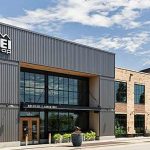According to the findings of a new global consumer study released by IBM’s Institute For Business Value (IBV), respondents surveyed are mostly confident in the safety, effectiveness and distribution of COVID-19 vaccines. They indicated a desire to return to normalcy after being vaccinated. But different rules, personal preferences and social norms formed during the last year mean that critical industries, including retail, travel and transportation, may need to provide more seamless, personalized marketing and client experiences to help remain competitive and engage successfully with customers.
The study of more than 15,000 adults found most were confident in the safety, effectiveness and distribution of COVID-19 vaccines and more than half expect the COVID-19 vaccine to protect them.
However, economic progress can happen gradually, as most respondents surveyed indicated that vaccination levels would need to exceed 70 percent to feel comfortable returning to life before the pandemic. If current COVID-19 vaccine rollout rates continue, it noted that most adults might not regain pre-COVID-19-pandemic comfort levels until well into 2022. Amidst this uncertainty, the adults surveyed are rethinking the way they work, socialize, travel and shop.
“Habits formed during the COVID-19 pandemic have raised consumers’ expectations of digital engagement, especially in service industries like retail, travel and transportation,” said Jesus Mantas, senior managing partner, IBM Global Business Services. “As we anticipate the post-COVID-19 pandemic normal, businesses should accelerate its digital evolution with AI and cloud-based solutions to help remain competitive. Investing in hybrid physical and digital experiences can help provide a more personalized experience.”
Most Global Consumers Surveyed Are Ready To Return To In-Store Shopping Once Vaccinated
According to the study, the tides may be turning for the ailing retail industry, with respondents surveyed indicating a strong desire, once they are vaccinated, to return to malls and shopping centers.
While many surveyed may not abandon online shopping, respondents indicated they are accustomed to doing it during the pandemic with at least 1-in-5 respondents saying they plan to continue shopping primarily online and, once vaccinated, expect to purchase in-store more often.
According to the study, the biggest categories that may see shifts toward in-person shopping are toys, games and hobbies (+121 percent) and apparel, footwear and accessories (+76 percent).
With convenience indicated as the main reason respondents surveyed continue to shop online, followed by value and the wide variety of products available online, to lure consumers back to physical stores, retailers can look to in-store promotions and local products. In-store promotions were the top factor that would drive respondents to shop in a physical store, especially for Gen X (54 percent) and Boomers (52 percent). Additionally, local products that are not available online, such as small-batch food products and hand-made apparel, could attract nearly 50 percent of Millennials, Gen X and Boomers, to shop in person who participated in the survey.
Potential Recovery Of The Travel Industry
While consumer travel has yet to rebound, there are promising signs. The study showed plane travel might see an uptick in demand, with 30 percent of respondents planning to fly more often, though this is offset by 23 percent of respondents who said they plan to fly less.
The study also found that roughly 1.5 times more vaccinated respondents expected to take an overnight trip in the next six months. However, a sizeable subset of the respondents plans to stay home indefinitely, with roughly 1-in-4 surveyed saying that they do not intend to travel in 2021, even after being vaccinated.
The vaccine may also reinvigorate professional travel, increasing the number of respondents comfortable traveling for business 2-to-4 times in most countries. However, older business travelers surveyed are less confident. Only eight percent of respondents surveyed over 55 are comfortable traveling for business without a COVID-19 vaccine, and just 25 percent would feel comfortable after they’re vaccinated.
The study showed personal automobiles continue their prominence, both during the COVID-19 pandemic and after respondents receive the vaccine. While 10 percent of respondents surveyed plan to use a personal vehicle less often after getting vaccinated, 47 percent said they would use their automobiles more.
The survey showed that other transportation forms might either see a slight increase or a net reduction in demand as more respondents become vaccinated. The cruise industry may experience the most significant net decline, with 26 percent of those surveyed saying they would use cruise ships less and only 17 percent surveyed said they would use them more.
Gen Z Respondents Surveyed, Ages 18-to-24, Are Exceptions To The Findings
Post-COVID-19, the vaccine outlook varies widely across surveyed respondents by generation, but in several categories, Gen Z respondents surveyed, especially hard hit by the COVID-19 pandemic, tended to be outliers.
Most Gen Z respondents want to spend time with people outside of their households once they get vaccinated, with 27 percent surveyed saying they would increase outside interaction, compared to 19 percent of Gen X surveyed, and just 16 percent of those surveyed over 55. However, except for restaurants and free venues like beaches and public parks, Gen Z respondents said they found the return to some large crowd social venues, such as live sporting events, amusement or theme parks, museums and art galleries, live theater events, and movie theaters, less appealing than other generations surveyed.
On average, 60 percent of Gen Z respondents plan to visit venues such as restaurants and bars, salons and barbershops once vaccinated, compared with 71 percent of Millennials and 69 percent of Gen X respondents surveyed. This appears to be the continuation of a trend, as Gen Z surveyed also reported visiting venues less frequently than those in other age groups during the pandemic.
The IBM Institute For Business Value (IBV) polled more than 15,000 adults in the United States, India, U.K., Canada, Germany, Mexico, Spain, Brazil, and China in February 2021 to better understand consumers’ perspectives on the COVID-19 vaccine, what they plan to do once they are vaccinated and how it could affect their perspectives on retail spending, transportation, future attendance at events in large venues, and returning to work. The IBV continues conducting research to regularly draw insights on consumer behavior since April 2020 about how COVID-19 has impacted their outlook and preferences. The complete study is available here.
Photo courtesy MedPage Today













